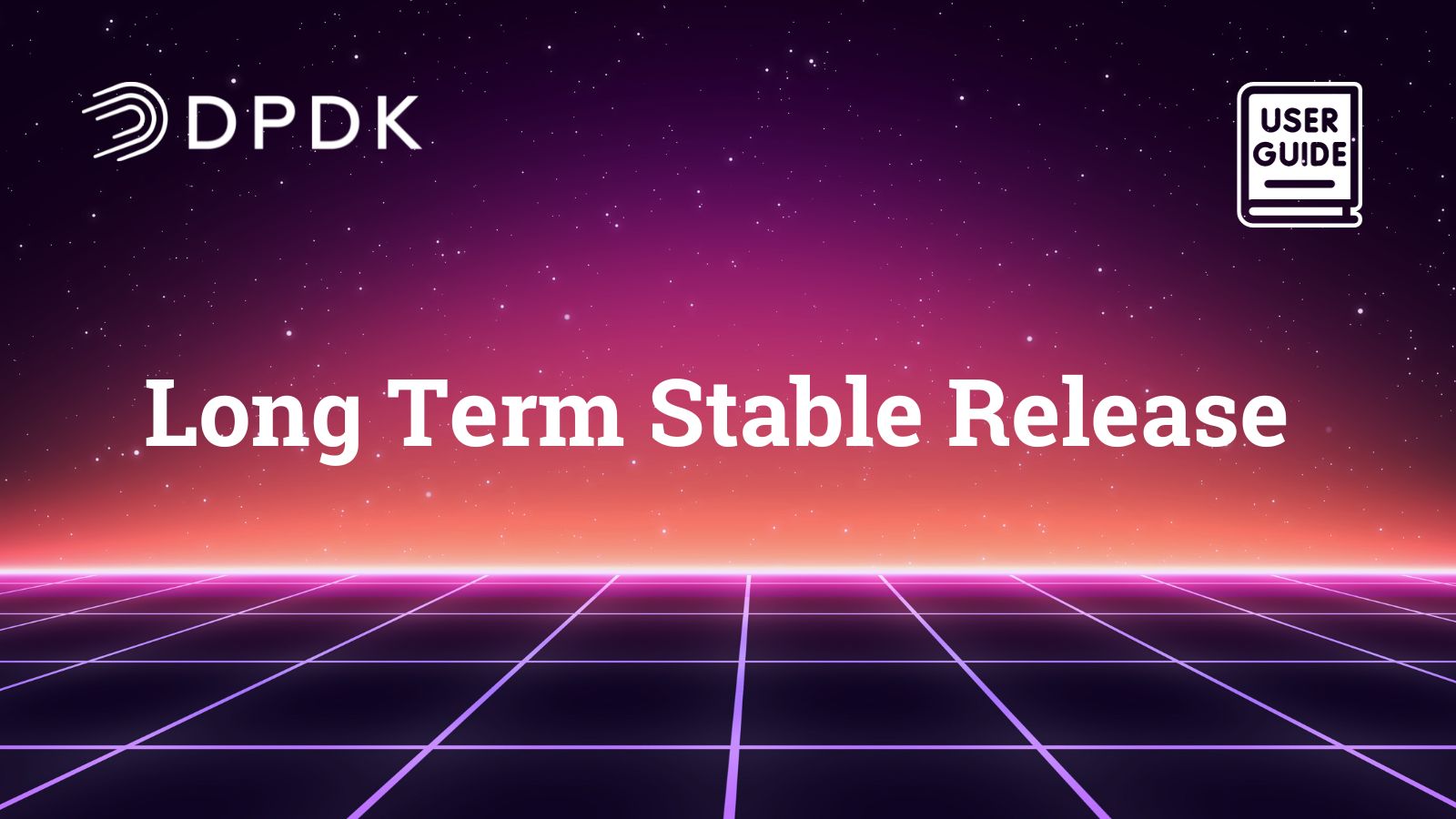
Navigating the Data Plane Development Kit (DPDK) release landscape requires a thorough understanding of what a Long-Term Stable (LTS) release entails and why it may be the preferred choice for certain network environments. This guide dives into the nuances of DPDK LTS, its suitability for production, and the level of active support it receives.
Understanding DPDK Long Term Stable (LTS) Releases
DPDK LTS releases stand out in the networking world for their reliability over an extended period. Here’s what sets them apart:
Longevity of Support: DPDK LTS offers a commitment of three years’ worth of fixes, ensuring that a chosen release remains robust against issues found long after its initial deployment.
Consistent Improvements: A DPDK LTS release isn’t static. It evolves with a series of API/ABI compatible drop-in replacements that incorporate the latest fixes discovered in the subsequent years. For instance, a series based on a 2022 DPDK release will be refined with fixes identified during 2023-2025.
Sustainability: This approach guarantees that production environments can rely on a consistent, stable platform without the need to constantly adapt to new feature changes.
DPDK LTS releases are tailored for specific scenarios within the networking domain
Ideal for Production: LTS releases are the go-to for production environments where stability is paramount and the latest features are less of a priority.
Focus on Stability Over Novelty: Organizations that value long-term reliability over cutting-edge features will find DPDK LTS releases more suitable.
Active Maintenance and Support
The vibrancy of the DPDK LTS ecosystem is reflected in the following statistics:
Multiple Active Releases: As of now, three LTS releases are being actively maintained: 21.11, 22.11, and 23.11.
Frequent Updates: 2023 saw 9 releases across these maintained LTS versions.
Volume of Fixes: Approximately 1800 fixes have been backported to the active DPDK LTS releases in the last year alone.
Maintenance Span for DPDK LTS
The commitment to maintain a DPDK LTS release is clear and long-term:
General Fixes: All identified fixes will be backported to the LTS releases for a full three years from their release date.
Security Patches: Security-related updates may even extend beyond the three-year window, ensuring that LTS releases maintain a strong defense against vulnerabilities.
Choosing a DPDK LTS Release
When deciding on a DPDK LTS release, consider the following:
Maintenance Timeline: Evaluate whether longer support windows aligns with your deployment cycle and update capacity.
Active Maintenance Record: The volume and frequency of backported fixes provide an indication of the LTS version’s vitality and the community’s dedication to its upkeep.
Security Commitment: With a promise of three-plus years of security fixes, assess whether this meets your organization’s security and compliance requirements.
Preparing for DPDK LTS Deployment
Transitioning to or between DPDK LTS releases requires an organization to:
Stay Informed: Keep abreast of the DPDK LTS release and maintenance schedules to time updates strategically.
Test Thoroughly: Allocate resources for detailed testing to ensure the LTS version integrates seamlessly with your environment.
Anticipate Adjustments: Be prepared for any necessary changes that might arise from the introduction of backported fixes.
Conclusion
Selecting a DPDK LTS release is a strategic decision influenced by the need for stability, long-term support, and a maintenance schedule that ensures network applications remain secure and performant.
With the extended support and backporting of fixes, DPDK LTS releases offer a dependable foundation for organizations seeking a stable networking stack. This maintenance model continues to be a cornerstone of network reliability, allowing organizations to leverage stable and secure networking functions without the churn of constant feature updates.
For more information visit: https://doc.dpdk.org/guides/contributing/stable.html


